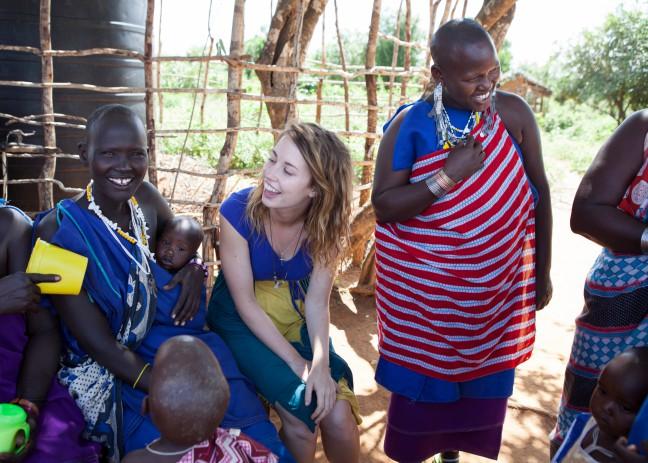In Swahili, the word “rafiki” means “friendship” and one University of Wisconsin student organization with the word in its title allows members to gain exactly that.
Rafiki Club, a student organization on campus, allows its members to learn invaluable lessons about friendship, culture and life through letter writing correspondence with Kenyan women.
The club collaborates with a program called Health by Motorbike that Ara Alonso, a UW professor in the Department of Gender and Women Studies, was inspired to create in 2009.
Health by Motorbike aims at training health workers to help enhance programs to promote health for women in isolated communities in Kenya and Tanzania, Alonso said.
Rafiki Club enhances communication between women receiving the benefits of Health by Motorbike and students involved in Alonso’s organizations, she said.
Alonso now takes regular visits to Africa with UW students from both Health by Motorbike, where they train health workers with knowledge learned at UW and translate it in a culturally-sensitive way, and Rafiki Club, where they get the opportunity to meet some of the women they have bonded with through their letters.
In Rafiki Club, UW students are each paired with a woman from Kenya with whom they communicate through letters about once every one or two months, Alonso said. Not only does it strengthen the bond between students and Kenyan women, but it helps the women practice English, she said.
“For the women in the village, [Rafiki Club] is very crucial,” Alonso said. “English is power in Kenya … Only people in power can speak and write English.”
About 30 students are involved in Rafiki Club, co-president Kelsey Scherer said.
When it first became a student organization in 2010, there were only five members, Alonso said.
Rafiki Club is important and impactful for both UW students involved as well as Kenyan women, Scherer said. She accompanied Alonso on a trip to Kenya in the summer of 2012.
“[The women] love their Rafikis,” Scherer said. “They take us in as another kid. They keep all of our letters and they hang our pictures on the walls in their house.”
Scherer said when she visited Kenya, many students were able to spend a night at their Rafikis’ houses, which were mostly mud huts with dirt floors. Nevertheless, the women welcomed the students, cooking for them and letting them sleep in their homes, she said.
Alonso said having a pen pal in Kenya is both an exciting learning process for students involved, as they have to share information in a cultural way. Once, Alonso’s daughter wrote about donating her hair to Locks of Love to Kenyan women, she said.
“All the women were laughing,” Alonso said. “[They] couldn’t understand why my daughter was telling this story about getting her hair cut. They have their hair cut or have their head covered or shaved.”
Scherer said Rafiki Club is unique in the way it allows its members to observe both similarities and differences between the two cultures. Additionally, Alonso said when students receive the letters they tend to realize the women are exactly the same as they are and they share the same values — family, friendship and happiness.
One of the most remarkable aspects of being a part of the club is learning how strong the Kenyan women are as people, Scherer said.
“To see … how strong they are and just happy to have a chance to learn more and make their lives and families better — I think it’s just very profound to see that,” Scherer said.














